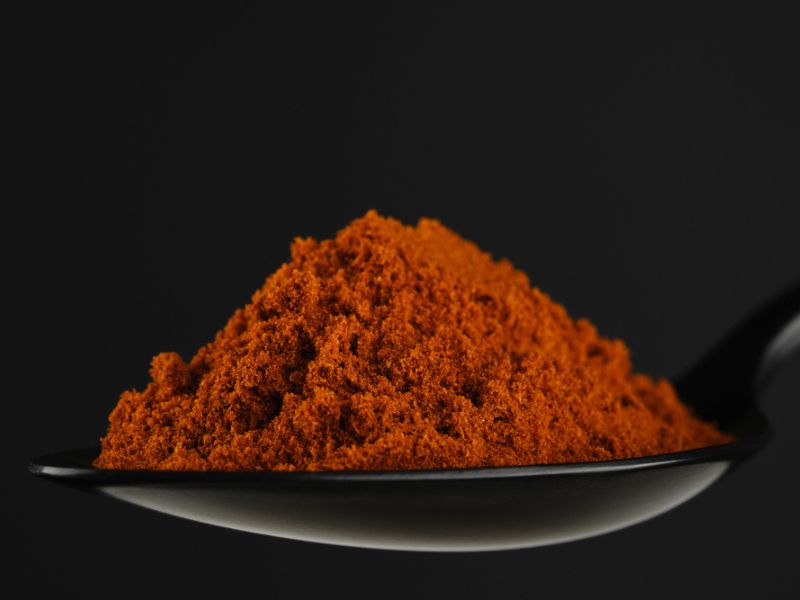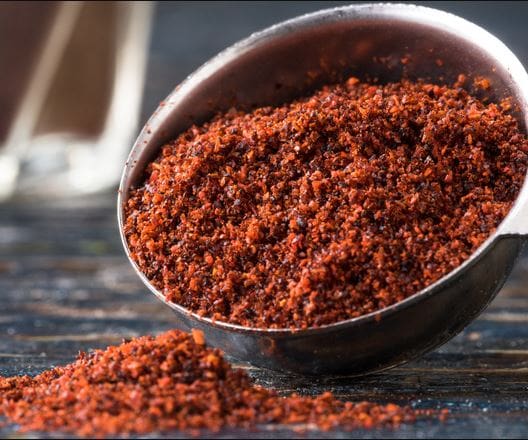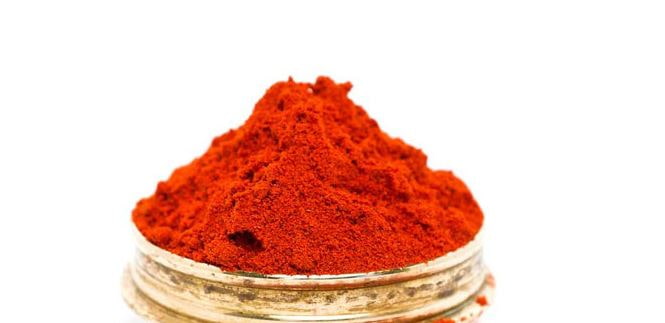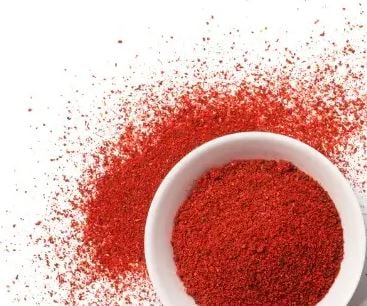Smoked paprika has a depth of flavor, different from other kinds of paprika. It is an excellent addition to meats and vegetables. The smokiness also pairs well with barbecued foods as it adds to the rich, heavy flavor profile
The best substitutes for smoked paprika include chipotle powder, chili powder, sweet paprika, hot paprika, and powdered guajillo pepper. These are great alternatives to choose from depending on the type of meal you are preparing.
Smoked paprika dates back to the 16th century. Its discovery came about as families dried peppers on wooden racks in smokehouses in Spain. The result was a smoky colorful spice that has taken the world by storm.

Can I use regular paprika in place of smoked paprika?
Regular paprika can substitute for smoked paprika depending on your flavor preference. Although it lacks the smoky factor, the base ingredient and the spiciness is similar to that of smoky paprika.
The only difference between smoked and regular paprika is the smoky flavor from the smoked pepper and therefore they can both be used interchangeably. I believe switching up spices in recipes is what makes cooking interesting.
If you have regular paprika and would like to get the exact flavor of smoked paprika, add a few drops of liquid smoke or cumin to get the smoky flavor.
Regular paprika is mostly used in Eggs, Stews and Soups, Creamy sauces, Steamed and boiled vegetables, and can also be added in marinades to bring a sweet and spicy taste.
9 best substitutes for smoked paprika
Smoked paprika, also known as Spanish paprika or pimenton, adds vibrant red color and a fruity, smoky flavor to food. There are other spices in your kitchen that you can use in its place to bring out the intended flavor just in case you run out of smoked paprika.
Most paprika substitutes provide a level of flavor close to smoked paprika. A few others only give off the smoky element and can’t make up for it flavor-wise. Still, there’s room to experiment by switching spices and playing with flavor profiles depending on the cuisine you’re preparing.
Here are some excellent smoked paprika substitutes:
1. Chipotle Powder

Chipotle powder is a spice that’s made of smoked and dried jalapenos. It not only has the smoky element but also a spicy flavor from the jalapenos that makes it a perfect substitute for smoked paprika.
Chipotle powder is a perfect addition to pork cuts, such as pork ribs and pork butt.
2. Sweet Paprika
Sweet paprika is a type of paprika that has a sweeter flavor compared to the rest. Since all types of paprika are made of the same base ingredients, substituting one for the other can be seamless. Although sweet paprika lacks the smoky element you can add a dash of cumin to provide the smoky flavor and chili powder to achieve the spiciness in smoked paprika.
3. Hungarian paprika
Hungarian paprika works well as a substitute for smoked paprika as the base ingredients are similar. Although it lacks the smoky factor it has the spiciness and the color of smoked paprika.
4. Hot Paprika

Hot paprika is a type of paprika that has a hotter flavor compared to the rest. However, it works best in place of smoky paprika due to the spicy flavor of smoky paprika. The smoky element in smoked paprika is achievable by adding cumin. Still, one or two drops of liquid smoke will work perfectly to introduce the smokiness to hot paprika.
Go easy on the liquid smoke because you don’t want the smokiness to overpower the spiciness.
5. Powdered Guajillo Pepper
If you love smoked paprika for its smokiness, powdered guajillo pepper is a perfect choice. Guajillo peppers have a natural smoky flavor, so there is no need to add any smokiness to them. Like smoked paprika, powdered guajillo pepper also has a spicy and sweet taste making it a great substitute for smoked paprika.
Powdered guajillo pepper is commonly added in soups, sauces, and salsa to give a signature smoky aroma and taste.
6. Chili Powder
One of the elements that stand out in smoked paprika is the spice. Chili powder has the hot element that you want. What’s lacking is the smokiness. Again, adding cumin will help add a smoky flavor to chili powder. Two parts chili powder to one part cumin are enough to achieve the smoked paprika flavor.
Before adding chili powder to any dish, check the brand of chili powder you use. Chili powder can be mild, medium-hot, or extremely hot. Smoked paprika is not too hot, so be sure to start with small portions to achieve the correct flavor.
Chili powder is common in Indian cuisine. Its use extends to bean dishes, baked corn, and casseroles. It is also perfect for making marinades for vegetables and paneer.
7. Ancho Pepper Powder

Ancho peppers are Mexican peppers known for their smokiness, spiciness, and sweetness with fruity undertones. These characteristics are what make it a perfect substitute for smoked paprika. Although it is milder in terms of spiciness you can add chili powder to get the exact flavor in smoked paprika.
This smoked paprika substitute is suitable for chicken dishes, stews, vegetables, and Mexican dishes like mole.
8. Cayenne Pepper Powder
If you love some heat, cayenne pepper is the go-to substitute. The heat supersedes that of jalapeno peppers. Naturally, cayenne pepper has a touch of smoky flavor although it lacks the hint of sweetness.
Therefore you will need to regulate the amount of cayenne pepper to prevent the heat from overshadowing other flavors in your recipe.
9. Liquid Smoke
While liquid smoke offers the perfect level of smoke (if regulated), it does not add any color to the dish. Liquid smoke is powerful and can easily become overwhelming. If used moderately, liquid smoke works well in place for smoked paprika.
To achieve spiciness add chili and other spices of choice to the dish. Also, throw in half a teaspoon of regular paprika to get the red color that smoked paprika is famous for. Liquid smoke pairs well with meats, sauces, dressings, salmon, mac and cheese, and vegetables.
What is smoked paprika used for?
Smoked paprika is mostly used in marinades and meat rubs nowadays compared to traditionally when it was only incorporated in chorizo. You can also add it to sauces, stews, and soups if you like your food spicy. However, you will need to add it in moderation as the smoky factor can easily overpower other flavors if used in excess.
References
- Megan, Dinner Tonight, Texas A&M Agrilife Extension: Shrimp, Pineapple & Veggie Skewers
- J. E. Campillo, Journal of Food: The mechanism of the antioxidant effect of smoked paprika from La Vera, Spain
- Allison Fosher Speer, TCU Magazine: The intelligent pantry – The proper use of herbs and spices can make even tasteless food palate-pleasing.
